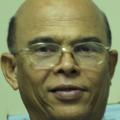
Burma: Suu Kyi draws attention to constitutional change during a seminar |
|
As Burma has been involved in political and economic reforms gradually, the rule of law is extremely vital to restructuring course. The rule of law is essential not only in the judicial sector but also in business and administrative sectors too. All stakeholders, of legislature, executive and judiciary have the obligation to put into service the rule of law, said Union Attorney-General Dr Tun Shin, at the opening of the seminar.
Dr Tun Shin also explained about the seven components of the rule of law as the most useful one for a politically stable and free society. These components are, in a nutshell, firstly, no person can be punished without a due process of law. Secondly, without undue delay. Sixthly, discretion in interpreting the law whether by officials of government or judges should be limited by law he said.
According to Attorney-General, a fair law is the vehicle of justice. It is indisputable that rule of law is one of the fundamentals to meet the ends of justice. Without the rule of law in society, there may not be stability, prosperity and democracy, he said.
Dr Tun Shin also mentioned President Thein Sein's mission statement which emphasized the importance of good governance and clean government. Good governance means that authorized persons must have discipline and system in carrying out their duties. Clean government means that the responsible persons must respect the law, retain good moral character and refrain from corruption. The rule of law involves myriad of ambitions in transition to democracy he explained referring presidents mission statement.
Dr Tun Shin continued explaining the presidents mission statement that there is political will to eradicate and combat corruption. If there be corruption, rule of law will not prevail. As part of efforts for the emergence of good governance and clean government after the government took office, as Action Committee against Corruption headed by a Vice-President is formed and work of the committee have commenced to fight corruption and bribery. The Legislature on 8 August 2012, formed the Committee on Rule of Law and Tranquility of People's Parliament to overview the rule of law.
Ambassador David Lipman said that EU highly praised the remarkable changes in the country and recognized the challenges ahead in terms of democratization, economic development, the situation of human rights and peace and national reconciliation, according to the NLM newspaper.
"We must empower those most vulnerable in society, especially the women and the children," Lipman told the meeting.
Chairman of Peoples Parliament Rule of Law and Tranquility Committee, Daw Aung San Suu Kyi expressed in her keynote speech, satisfaction joining all participants in the unique seminar on the rule of law in Burma/Myanmar.
According to Suu Kyi, Burmese people did not have confidence with the court and did not trust in justice made by the court and that for decades the courts were not free from the executives, she told the meeting. She emphasized the important of amending the constitution should be everybody's concern in the country so that it would meet the standard of a valid democratic society. At the same time, Suu Kyi said she wished for accomplishing it through negotiations and the establishment of reciprocal understanding concerning benefits for nation.
As published in the state-run media, Suu Kyi stated The rule of law, constitutional reforms, everything to do with democracy, justice and stability in our country is the concern and responsibility of every citizen in our country. She also said, We must put greater emphasis on administering and disseminating information so that our people not only know the legal rights but also know the provisions that exist to combat the violation of these rights. I would like to urge that our people must not only know their rights but also the responsibilities.
She also mentioned that if the courts are not provided with the basic necessary tools for law courts, citizens cannot expect the rule of law in the homeland.
| Rate It | View Ratings |
Zin Linn was born on February 9, 1946 in a small town in Mandalay Division. He began writing poems in 1960 and received a B.A (Philosophy) in 1976.
He became an activist in the High School Union after the students' massacre on 7th July 1962. (more...)

OpEdNews depends upon can't survive without your help.
If you value this article and the work of OpEdNews, please either Donate or Purchase a premium membership.
If you've enjoyed this, sign up for our daily or weekly newsletter to get lots of great progressive content.
Most Popular Articles by this Author: (View All Most Popular Articles by this Author)
Is Burma's reform backtracking as press freedom at stake?
Burma dreams "Poverty Alleviation' without stopping civil war
Burma: Shackling press freedom, Reform will be futile
Burma's junta pays no heed to Freedom of Expression
Burma needs transparency extracting natural resources
No Space for Press Freedom in Burma's Elections
To View Comments or Join the Conversation:



